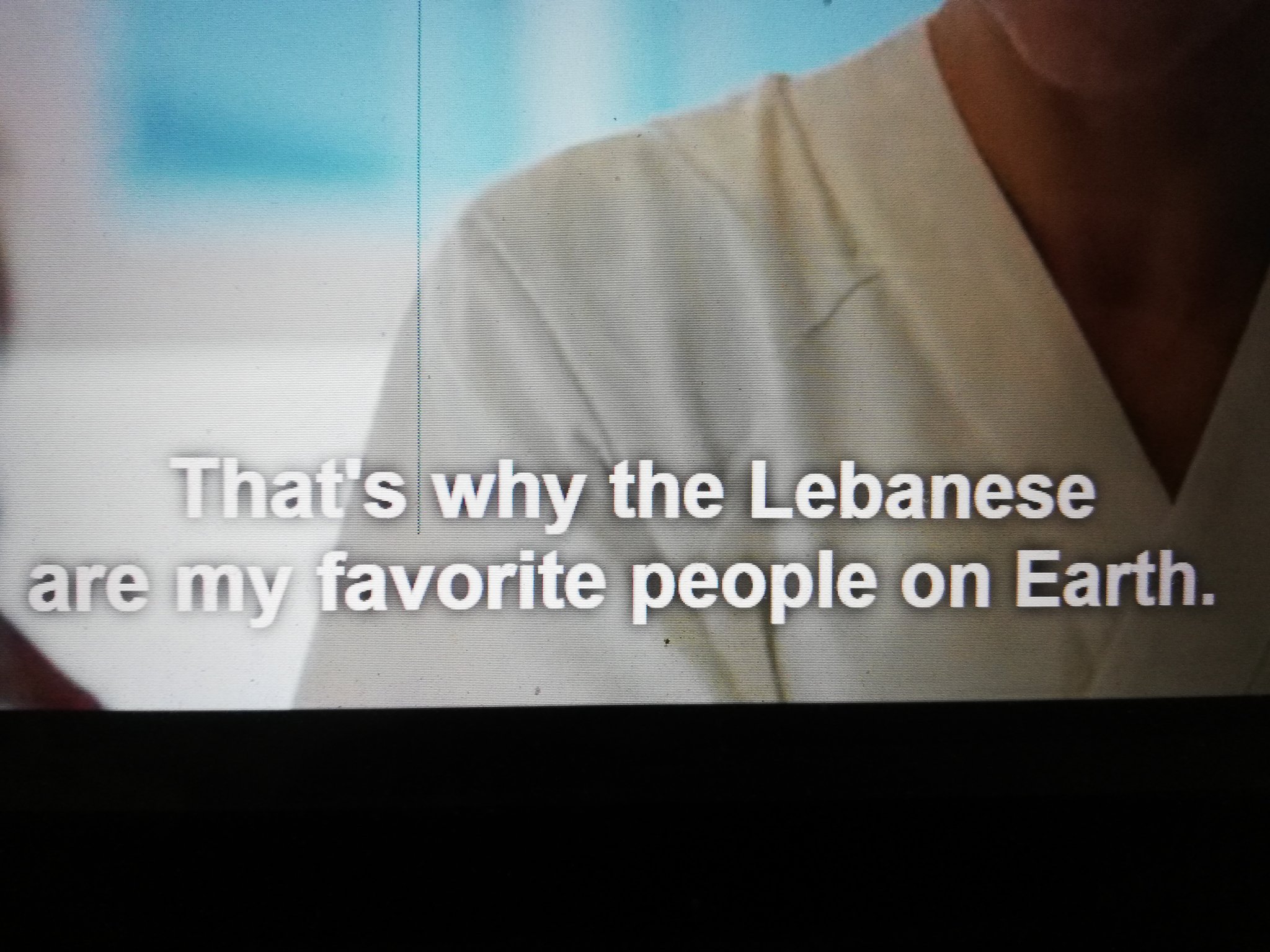Romantic drama-comedy ‘Home for Christmas’ is Netflix’s first Norwegian original series that follows the protagonist Johanne on her struggle to find a boyfriend to bring home for Christmas Eve.
The Norwegian Christmas rom-com is warm, cuddly, and worth-watching, but there’s just one complaint. It has some misconceptions about Lebanon that should be addressed.
Johanne, who is a nurse, regularly tends to an elderly COPD patient named Mrs. Nergaard, who is anything but sickly. She is a diva by all means and tries to loosen Johanne up and give her dating tips and advice.

In season 1 episode 4, Johanne must go to a Christmas party, which prompts Mrs. Nergaard to reminisce about her own wild past.
She recalls a Christmas party she went to at the Norwegian embassy in Beirut, “Oh God, were they (the Lebanese) wild! They flew in a living pig and they ended up slaughtering it right there in the living room.”
Johanne here replies, “I thought Muslims couldn’t eat pigs,” to which Mrs. Nergaard says, “What happens at Christmas parties stays at them. That’s why the Lebanese are my favorite people on Earth.”

To any foreigner, it would seem that there is nothing wrong with this scene. In fact, it would come off as sweet and possibly make people curious about Lebanon and its people.
However, to a Lebanese, one can’t help but itch from the deep misunderstanding about Lebanese culture or even demographics and certainly how we celebrate Christmas, a Christian event.
Mrs. Nergaard saying about Lebanese slaughtering a live pig at a Christmas party is totally absurd. The Lebanese traditional main dish on the Christmas menu is a Stuffed Turkey or alternatively Lamb with Rice, and certainly never slaughtered during the celebration.

The writer of that film got it all wrong, conveying instead a barbaric tale of the Lebanese culture and a bloody presentation of the holy event that is Christmas for the Lebanese.
Unless, of course, we emphasize the fact that Mrs. Nergaard said it happened in the Norwegian embassy, which has nothing to do with a Lebanese celebration.
At opposed to the character’s statement “What happens at Christmas parties stays at them,” the Lebanese have nothing to hide about their celebrations.
They are actually very outspoken and out-showing about it all. There is a reason why they have been ranked the 2nd most extrovert people in the world.
Moreover, and probably most importantly, the scene erroneously portrays Lebanon as a Muslim country. Every Lebanese will point out that this is a fallacy.
Lebanon is a biblical place with a large and historic Christian population, a fact known to all and that the moviemaker, somehow somewhat, failed to realize. Jesus literally visited Lebanon on several occasions. His first miracle actually happened in Lebanon, in the village of Qana.
The country is mixed, full of diversity, and prides itself in its generally peaceful coexistence; at least besides the political sectarian differences. Even these known political sectarian differences should have indicated to the film writer that Lebanon is not a country of one religion.
While we are a country open to the world, since the onset of times, small yet always making the international headlines for one reason or another, it is not the first time Lebanon gets portrayed incorrectly by Western filmmakers.
In fact, that is more often than not the case. Does anyone recall the infamous movie ‘Beirut‘? It certainly profited off giving Lebanon a bad reputation and reinstating false stereotypes.
Then again, we can’t consider the character of Mrs. Nergaard such a proper reference. She, after all, was not much on ethics and morals, as the writer portrayed her.
She had an affair with her husband’s Lebanese driver. She even remembers him fondly as she talked about it, saying: “That hot Lebanese guy….”



















